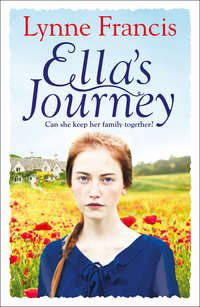Ella’s Journey: The perfect wartime romance to fall in love with this summer

Добавить В библиотекуАвторизуйтесь, чтобы добавить
Добавить отзывДобавить цитату
Ella’s Journey: The perfect wartime romance to fall in love with this summer
Вы ознакомились с фрагментом книги.
Для бесплатного чтения открыта только часть текста.
Приобретайте полный текст книги у нашего партнера:
Всего 10 форматов
Авторизация